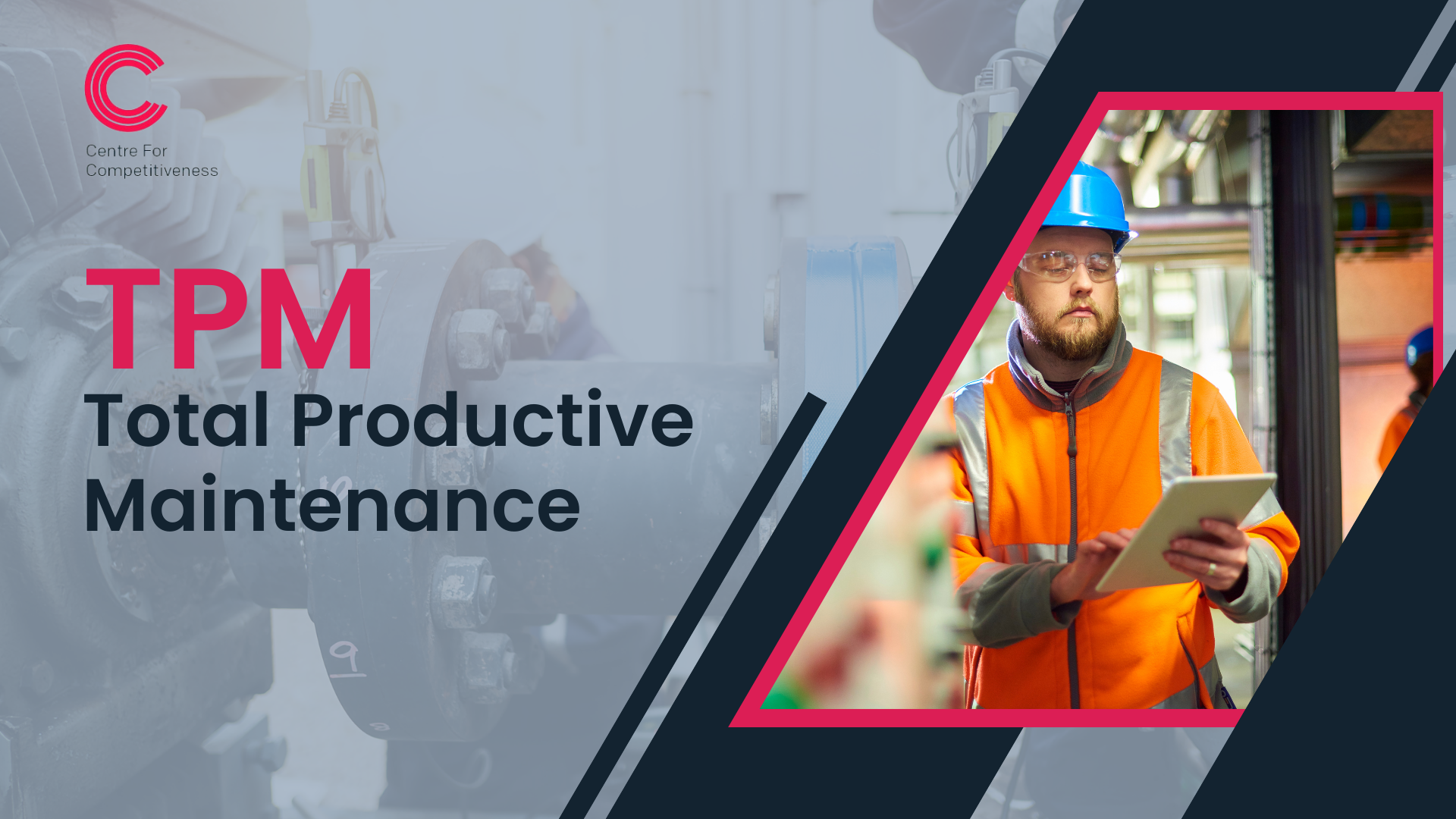Total Productive Maintenance (TPM)
TPM (Total Productive Maintenance) is a systematic approach to equipment utilization and maintenance that strives to achieve zero breakdowns, no small stops or slow running, and zero defects. In addition to this, it focuses on creating a safe working environment leading to zero accidents. It takes a holistic view of production and quality systems through the machines, equipment, processes, and employees that add business value to an organization, and emphasizes proactive and preventive maintenance to maximize the operational efficiency of equipment.
The traditional approach to TPM consists of “5S” as a foundation and eight supporting activities, sometimes referred to as the TPM pillars. As with any lean initiative it is critical to measure improvement. OEE (Overall Equipment Effectiveness) is a metric originally developed to measure the success of total productive maintenance programs by associating the Six Big Losses with three measurables: Availability, Performance and Quality.
This workshop provides an overview of these key concepts, and focuses on how to relate them to everyday operations so that people can relate to them and view them as tools that will facilitate their daily tasks and deliver results.
Our Workshop is delivered over a full day covering the following topics:
Module 1: Introduction to Total Preventative Maintenance
o What is TPM?
o Challenge – it’s behaviour, not a project….
o Key Lean concepts and TPM
o Principles of 5S
Module 2: TPM Pillars
o Autonomous Maintenance Places responsibility for routine maintenance, such as cleaning, lubricating, and inspection, in the hands of operators.
o Planned Maintenance: Schedules maintenance tasks based on predicted and/or measured failure rates.
o Quality Maintenance: Design error detection and prevention into production processes. Apply Root Cause Analysis to eliminate recurring sources of quality defects.
o Focused Improvement: Have small groups of employees work together proactively to achieve regular, incremental improvements in equipment operation.
o Early Equipment Management: Directs practical knowledge and understanding of manufacturing equipment gained through TPM towards improving the design of new equipment.
o Training and Education: Fill in knowledge gaps necessary to achieve TPM goals. Applies to operators, maintenance personnel and managers.
o Safety, Health, Environment: Maintain a safe and healthy working environment.
o TPM in Administration: Apply TPM techniques to administrative functions.
Module 3: Measuring Success in TPM
o Introduction to OEE
o Key Concepts: Availability Loss, Performance Loss, Quality Loss
o The Six Big Losses:
1. Breakdowns
2. Setup and adjustment losses
3. Idling and minor stoppages
4. Reduced speed.
5. Defects and rework
6. Start-up losses
Module 4: How to Implement TPM
o Identify Pilot Area
o Restore Equipment to Prime Operating Condition
o Start Measuring OEE
o Address or Reduce Major Losses
o Introduce Proactive Maintenance Techniques
Module 5: Sustaining TPM
o Engaging Employees
o The role of Leaders
o TPM and a Continuous Improvement culture
This workshop can be delivered in-house as a stand-alone training workshop or integrated into wider improvement activities. We will be happy to discuss our Total Productive Maintenance workshop in the context of your own business needs.
For further information please visit our website at www.cforc.org or email us at compete@cforc.org Alternatively, you can call us on 028 9073 7950 to request more information.
Our mailing address is:
Centre for Competitiveness
NITC, Cloreen Park
Belfast, BT9 5HN
Copyright © 2024 Centre for Competitiveness, All rights reserved.

